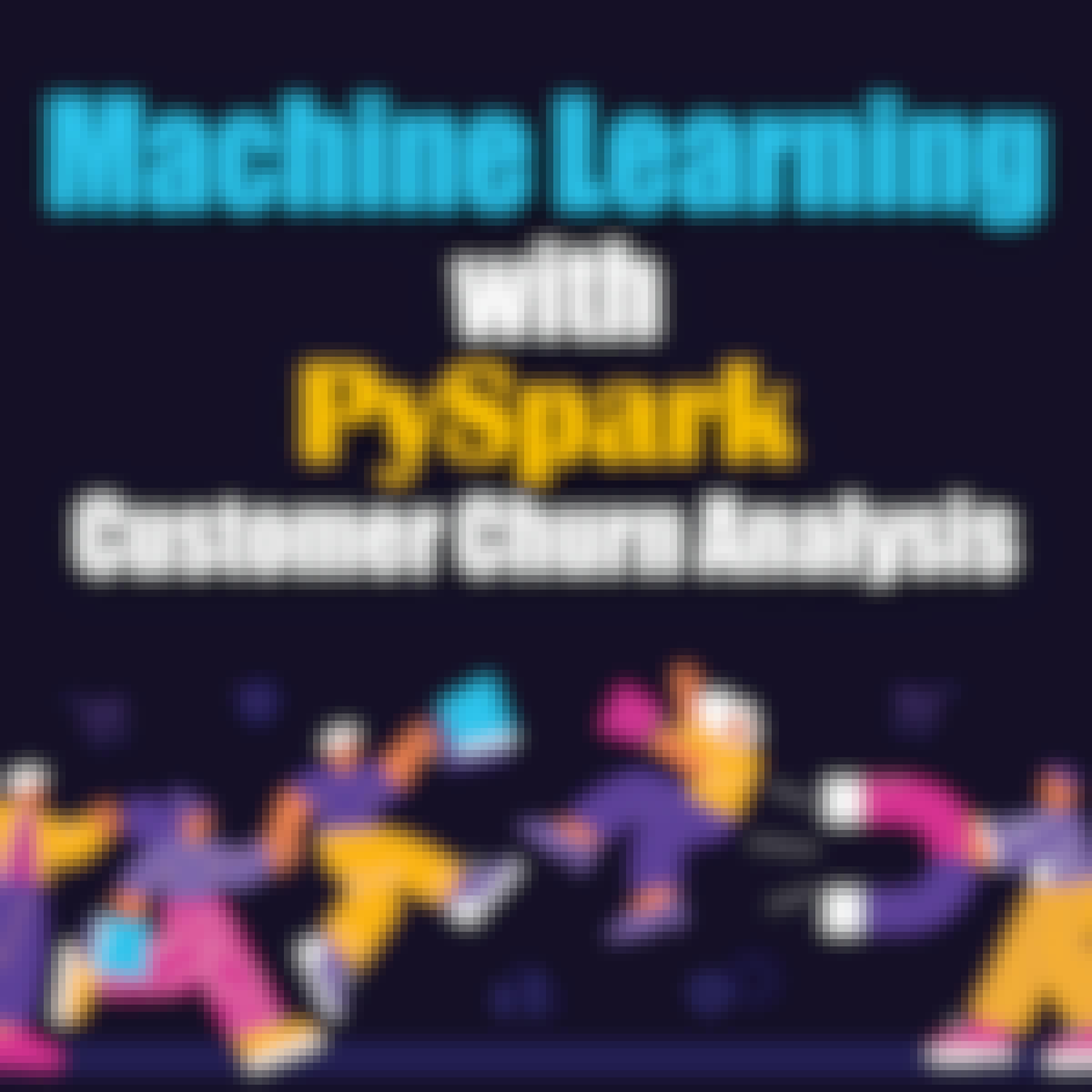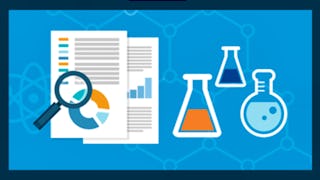Filter by
SubjectRequired
LanguageRequired
The language used throughout the course, in both instruction and assessments.
Learning ProductRequired
LevelRequired
DurationRequired
SkillsRequired
SubtitlesRequired
EducatorRequired
Explore the Exploratory Data Analysis Course Catalog

Coursera Project Network
Skills you'll gain: Exploratory Data Analysis, Feature Engineering, Data Analysis, PySpark, Data Processing, Data Cleansing, Data Transformation, Apache Spark, Data-Driven Decision-Making, Decision Tree Learning, Predictive Modeling, Predictive Analytics, Applied Machine Learning, Application Deployment, Machine Learning
 Status: Preview
Status: PreviewBall State University
Skills you'll gain: Data Visualization, Rmarkdown, Exploratory Data Analysis, Data Visualization Software, Ggplot2, Interactive Data Visualization, Plot (Graphics), Statistical Visualization, R (Software), R Programming, Data Storytelling, Data Presentation, Histogram, Scatter Plots, Data Analysis
 Status: Free Trial
Status: Free TrialSkills you'll gain: Plotly, Exploratory Data Analysis, Predictive Modeling, Data Science, Data-Driven Decision-Making, Data Presentation, Data Analysis, Pandas (Python Package), Web Scraping, Statistical Modeling, Data Wrangling, Machine Learning Methods, Data Collection, GitHub

Skills you'll gain: Data Cleansing, R Programming, Statistical Analysis, R (Software), Data Manipulation, Classification And Regression Tree (CART), Advanced Analytics, Statistical Modeling, Random Forest Algorithm, Statistical Methods, Predictive Modeling, Exploratory Data Analysis, Feature Engineering, Machine Learning, Dimensionality Reduction
 Status: NewStatus: Preview
Status: NewStatus: PreviewSkills you'll gain: Data Modeling, Classification And Regression Tree (CART), Data Validation, Statistical Analysis, Application Deployment
 Status: Free Trial
Status: Free TrialSkills you'll gain: Shiny (R Package), Data Presentation, Exploratory Data Analysis, Data Wrangling, Predictive Modeling, Tidyverse (R Package), Data Science, Data Collection, Interactive Data Visualization, Data Manipulation, Dashboard, Data Analysis, Data Cleansing, R Programming, Statistical Modeling, Regression Analysis, Ggplot2, Data Visualization, Data Transformation, Predictive Analytics
 Status: NewStatus: Free Trial
Status: NewStatus: Free TrialSkills you'll gain: Matplotlib, Statistical Modeling, Descriptive Statistics
 Status: NewStatus: Free Trial
Status: NewStatus: Free TrialCoursera Instructor Network
Skills you'll gain: Business Intelligence, Excel Macros, Pandas (Python Package), Prompt Engineering, Forecasting, Data Storytelling, Time Series Analysis and Forecasting, Regression Analysis, Data Quality, ChatGPT, Microsoft Excel, Generative AI, Data Analysis, Report Writing, Interactive Data Visualization, Data Modeling, Exploratory Data Analysis, Data Visualization, Statistical Analysis, Automation

Skills you'll gain: R Programming, Ggplot2, Data Visualization, Data Manipulation, Exploratory Data Analysis, Statistical Programming, Data Science, Tidyverse (R Package), Statistical Modeling, Data Analysis, Regression Analysis, Data Structures, Statistical Analysis, Descriptive Statistics, Programming Principles, Data Transformation, Probability & Statistics
 Status: NewStatus: Free Trial
Status: NewStatus: Free TrialSkills you'll gain: Data Processing, Data-Driven Decision-Making, NumPy
 Status: Free Trial
Status: Free TrialCorporate Finance Institute
Skills you'll gain: Feature Engineering, Data Science, Data Analysis, Business Analytics, Data Literacy, Predictive Analytics, Data-Driven Decision-Making, Regression Analysis, Data Modeling, Classification And Regression Tree (CART), Statistical Analysis, Business Intelligence, Data Storytelling, Machine Learning, Supervised Learning, Data Cleansing, Exploratory Data Analysis

Coursera Project Network
Skills you'll gain: Exploratory Data Analysis, Seaborn, Plotly, Data Visualization, Data Visualization Software, Interactive Data Visualization, Data Analysis, Python Programming, Predictive Modeling, Data Science, Jupyter, Cloud Applications
Exploratory Data Analysis learners also search
In summary, here are 10 of our most popular exploratory data analysis courses
- Machine Learning with PySpark: Customer Churn Analysis: Coursera Project Network
- Data Visualization: Ball State University
- Applied Data Science Capstone: IBM
- Regression Analysis for Statistics & Machine Learning in R: Packt
- Predictive Models: Build, Explore Data & Deploy: EDUCBA
- Data Science with R - Capstone Project: IBM
- Seaborn Python: Visualize & Analyze Data Distributions: EDUCBA
- Modern Data Analytics with Python, Excel & Generative AI: Coursera Instructor Network
- R Programming for Statistics and Data Science: Packt
- Seaborn Setup: Tools, Data Prep & EDA for Visualization: EDUCBA










